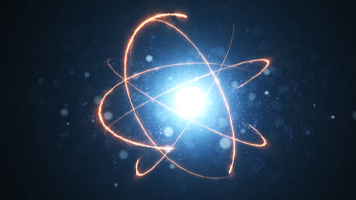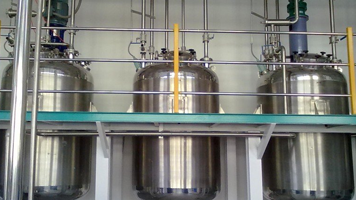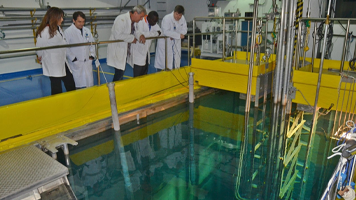The Human Factors Engineering area of the Nuclear Engineering Program (PEN) at COPPE/UFRJ was approved at the collegiate meeting held on 05/18/95. This new area complements the research activities that fall within other areas of the Program.
The Human Factors Engineering area emerged as a result of a set of researches developed in the last three years, substantiated by the development and defense of some Master’s and Doctoral theses, in addition to several scientific publications.
The area has the direct participation of professors Aquilino Senra and Roberto Schirru, and currently has several lines of research at the level of master’s and doctoral theses.
The application of advanced systems engineering and computing techniques, such as expert systems, neural networks, fuzzy logic and genetic algorithms, to some problems in the operation of nuclear power plants has a potential objective to improve the safety and operating conditions of these plants. The aforementioned techniques emerged as computational systems development tools in the last two decades, from a relative period without significant applications to the rapid growth of information processing technology.
One of the main applications of advanced computer and systems engineering techniques is in the development of knowledge systems, and in particular in artificial intelligence. Such systems have a complementary character to engineering simulation systems, particularly in the solution of complex problems in which engineering simulations are prohibitive, either because of computational time, or because of difficulties in analytical modeling.
Several artificial intelligence applications have been made in the area of nuclear engineering, for example, to diagnose the shutdown of a PWR nuclear reactor through the technique of neural networks. Engineering simulation of such a problem would certainly require a long period of time to restart the nuclear reactor. Detection of abnormal conditions in the operation of a nuclear power plant, signal validation, monitoring and control of nuclear processes are other applications of artificial intelligence in nuclear engineering.
These research activities do not fall within the currently existing areas of the Nuclear Engineering Program. In fact, the creation of the Human Factors Engineering area reflects an international trend, particularly in most American universities, which have created new areas to adapt the new lines of research to the curriculum structure of the courses.























